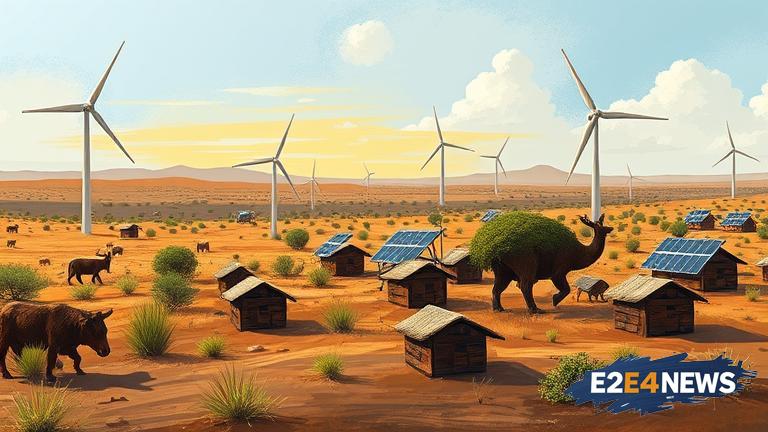The African continent is witnessing a significant shift towards renewable energy, driven by the need to address the pressing issues of energy access, energy security, and climate change. With many countries still struggling to provide electricity to their populations, renewable energy has emerged as a viable solution. Solar and wind power are becoming increasingly popular, with many African nations investing heavily in these sectors. In South Africa, for example, the government has set ambitious targets to increase the share of renewable energy in the national energy mix. The country has already made significant strides in this regard, with several large-scale solar and wind farms coming online in recent years. Similarly, in Morocco, the government has launched an initiative to generate 52% of the country’s electricity from renewable sources by 2030. Other African countries, such as Egypt, Kenya, and Ghana, are also making significant investments in renewable energy. The benefits of renewable energy are numerous, including reduced greenhouse gas emissions, improved air quality, and enhanced energy security. Moreover, renewable energy can create jobs and stimulate local economies, contributing to sustainable development. However, despite the many advantages, there are still significant challenges to be overcome, including the high upfront costs of renewable energy technologies and the need for significant investment in infrastructure. To address these challenges, many African countries are turning to international partners and investors, seeking funding and technical expertise to support their renewable energy ambitions. The African Union has also launched several initiatives to promote the development of renewable energy across the continent, including the African Renewable Energy Initiative. This initiative aims to achieve at least 300 GW of renewable energy capacity by 2030, which would be a significant increase from current levels. In addition to solar and wind power, other forms of renewable energy, such as hydro and geothermal, are also being explored in Africa. In the Democratic Republic of Congo, for example, the government is planning to develop the massive Inga Dam, which would be one of the largest hydroelectric power plants in the world. Meanwhile, in Ethiopia, the government is investing in geothermal energy, with several projects currently under development. The growth of renewable energy in Africa is not only good for the environment, but also for the economy. According to a recent report, the renewable energy sector could support up to 24 million jobs globally by 2030, with many of these jobs likely to be created in Africa. Furthermore, the report notes that every dollar invested in renewable energy generates up to three times as much economic growth as the same dollar invested in fossil fuels. As the world continues to transition towards a low-carbon economy, Africa is well-positioned to play a leading role in the development of renewable energy. With its abundant natural resources, growing economies, and increasing demand for energy, the continent has the potential to become a major hub for renewable energy production and innovation. In conclusion, the renewable energy revolution in Africa is gaining momentum, driven by the need to address energy access, energy security, and climate change. While there are still challenges to be overcome, the benefits of renewable energy are clear, and the continent is well-positioned to play a leading role in the global transition to a low-carbon economy.
